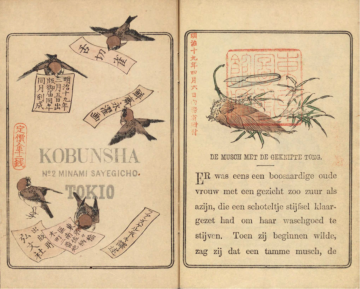The key question that the proposed edited volume attempts to answer is in what contexts the Dutch language has had contact with other languages outside the Dutch language area and what the consequences of this contact have been. Since it emerged as a continuum of nederduytsch dialects in the first millennium CE, the Dutch language has been in contact with many languages outside the Low Countries. People from the Low Countries as varied as merchants, soldiers, artisans, religious exiles, missionaries, and drainage workers have taken the Dutch language with them, often establishing Dutch language communities inside and outside Europe, bringing Dutch into contact with many other languages belonging to an extensive range of language families.
Amongst the topics that contact linguistics examines are multilingualism, codeswitching, lexical borrowing, grammatical interference, the emergence of contact varieties such as creoles and pidgins, and language shift or ‘first-language attrition’. The proposed volume intends to include chapters on all these themes. Furthermore, it will take a view of contact between Dutch and other languages across time with contributions analyzing this subject over the last thousand years or so. Additionally, it aims to examine contact globally to showcase the geographical reach of the Dutch language.
For this volume, we invite Dutch linguists, historical sociolinguists, and contact linguists to submit chapters especially on the following topics:
- How Dutch has functioned in multilingual environments;
- Language contact resulting from migration in the Middle Ages, such as Flemish migration to England, Scotland and Wales;
- The emergence of pidgins and creoles resulting from Dutch global commercial expansion;
- Code-switching and gap-filling in Dutch texts written outside the Dutch language area;
- Language shift from Dutch to languages other than English because of migration in the twentieth and twenty-first centuries, for example, to South America;
- The factors that have influenced the speed and scale of language shift from Dutch as an L1, e.g., language policy and technology;
- How contact linguistics helps to explain the emergence of Afrikaans;
- The contribution of texts compiled by missionary linguists to our understanding of contact between Dutch and other languages;
- The circulation of loanwords – how words are borrowed from Dutch and then re-borrowed by other languages. For example, Dutch loanwords have been borrowed by Japanese and then re-borrowed by languages that have contact with Japanese such as Korean, Mandarin Chinese and Taiwanese Hokkien;
- The role of the internet and digitalization in the collection and analysis of data on contact between Dutch and other languages.
Please submit a one-page abstract (ca. 300 words) and a short biography (one paragraph) to Dr. Christopher Joby at christopherjoby@gmail.com, before October 31st, 2022:
Applicants will be notified before January 1st, 2023. Chapters will be due by December 31st, 2023.


